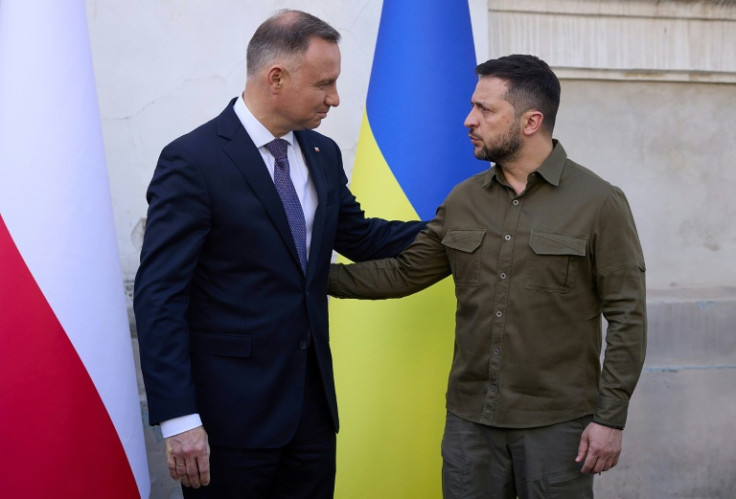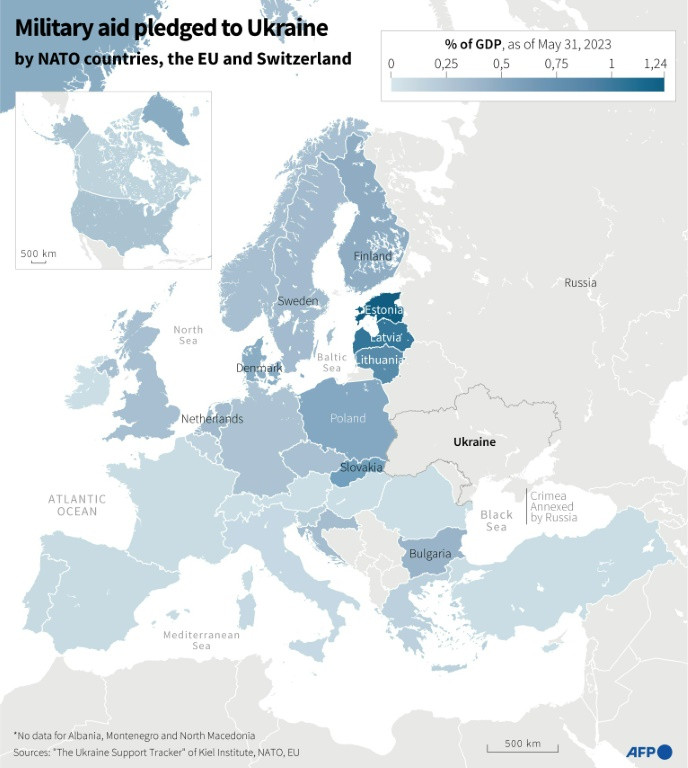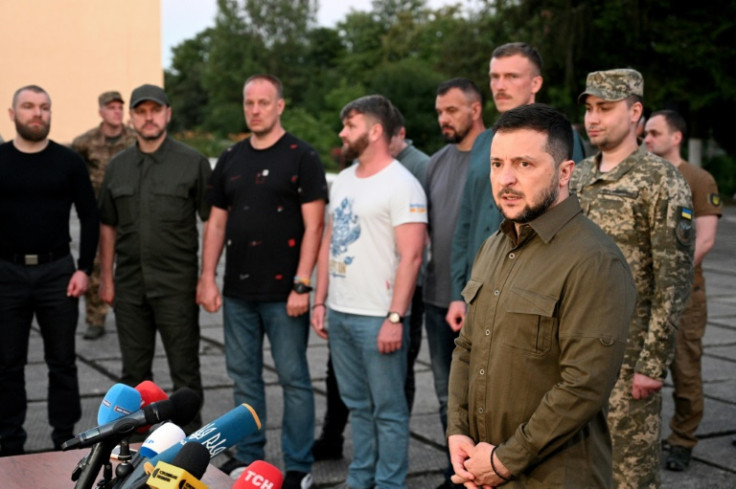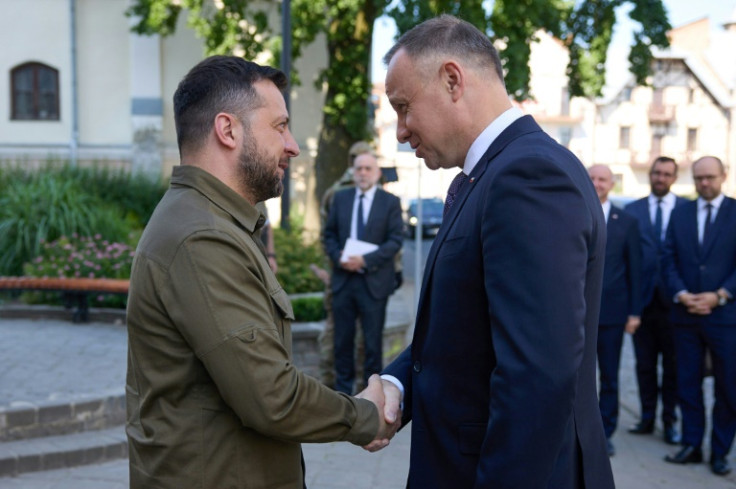Zelensky eyes 'best possible result' from NATO summit
Kyiv is hoping for a clear signal that it could one day join the alliance.

Ukrainian President Volodymyr Zelensky on Sunday voiced hope for the "best possible result" from an upcoming NATO summit where Kyiv is hoping for a clear signal that it could one day join the alliance.
After meeting his Polish counterpart Andrzej Duda, Zelensky said the two discussed the summit, which opens on Tuesday in Vilnius, and agreed to "work together to get the best possible result for Ukraine".

Poland is one of Ukraine's biggest supporters within NATO and has said it wants "security guarantees" for the country from other NATO members.
Zelensky has said he does not expect Ukraine to actually join NATO until after the war but he hopes the summit will give a "clear signal" on the intention to bring Ukraine into the alliance.
US President Joe Biden, who arrived on Sunday in Britain on his way to the NATO summit, said he hoped the military alliance leaders would "lay out a rational path for Ukraine to be able to qualify to be able to get into NATO".
Speaking to CNN, he said there were also "other qualifications that need to be met, including democratisation".
"I don't think there is unanimity in NATO about whether or not to bring Ukraine into the NATO family now, at this moment, in the middle of a war," he added.

Bringing Ukraine in now, Biden said, would mean "war with Russia" because of the NATO commitment to collective defence.
Zelensky returned from Turkey on Saturday -- the 500th day of Russia's full-scale invasion -- after a regional tour to drum up support ahead of the summit with Western allies, who have pledged billions in military aid.
He was accompanied by five top commanders from the Azov regiment who were supposed to have remained in Turkey until the end of the conflict under a prisoner exchange deal with Moscow.
Their return to Ukraine angered the Kremlin, with spokesman Dmitry Peskov quoted by Russian news agencies on Saturday as saying that it was "a direct violation" of the agreement with Turkey.
Turkish Foreign Minister Hakan Fidan spoke to his Russian counterpart Sergei Lavrov on Sunday and the two discussed the issue of the Azov commanders, the Russian foreign ministry said in a statement.

Biden hopes to use the summit to pressure Turkey to drop its opposition to Sweden's all-but-cleared NATO membership bid.
In a phone call with Turkish President Recep Tayyip Erdogan on Sunday, Biden "conveyed his desire to welcome Sweden into NATO as soon as possible," the White House said.
Erdogan's office said separately that he would meet with Biden on the sidelines of the NATO summit in Vilnius.
The talks will focus on "Ukraine's position in NATO, Sweden's NATO membership, and the delivery of F-16" fighter jets, which Turkey hopes to secure from the United States, the Turkish presidency said.
Speaking to reporters aboard the US presidential plane, White House National Security Advisor Jake Sullivan confirmed Biden and Erdogan "will have the opportunity to sit down in Vilnius," but said the scheduling was still being worked out.
Sullivan said Sweden's accession into NATO was only "a matter of timing."
"If we get it done by Vilnius, great. That may or may not happen," he said.
The Turkish presidency however said Erdogan had reaffirmed to Biden his longstanding position that Sweden still needed to crack down harder on suspected Kurdish militants to win Turkey's support.

Zelensky last week won a US pledge for cluster munitions that could inflict significant damage to Russian forces.
Washington's decision to supply Ukraine with cluster bombs -- banned across a large part of the world -- has proved highly controversial.
Biden admitted that it had been "a difficult decision", one that humanitarian groups strongly condemned.
Sullivan said Sunday that Kyiv had pledged to only use the munitions on Ukrainian territory "where they have the highest incentive to limit impact to civilians, because it is Ukrainian citizens who would be at risk."
US Secretary of State Antony Blinken also spoke on Sunday with his Ukrainian counterpart, who "gave further assurances" on how the cluster munitions will be used, Sullivan said.
Cambodian Prime Minister Hun Sen, whose country still grapples with deadly war remnants, on Sunday urged Ukraine not to use cluster bombs.
Russia, which itself uses cluster munitions in Ukraine, said the decision was an "act of desperation" that would have "no effect" on the conflict.
© Copyright AFP 2025. All rights reserved.





















